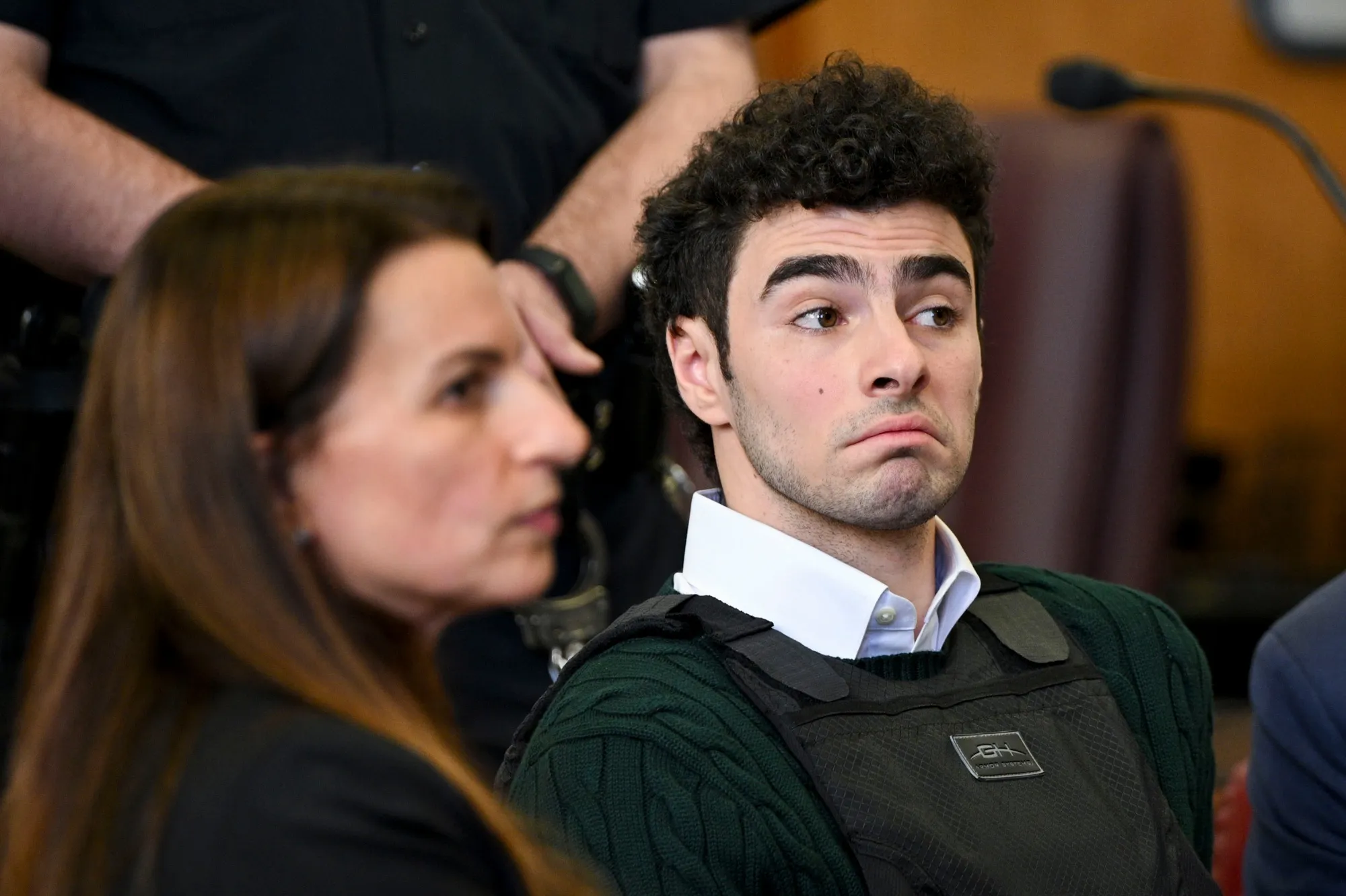When a man guns down the leader of the nation’s largest health insurer, can we really separate the individual from the collective? Was this an attack on one man—or on the machinery of corporate healthcare? The law says no. Reality whispers otherwise.

Luigi Mangione’s case, now stripped of terrorism charges, exposes America’s unresolved tension between violence, corporate accountability, and the boundaries of law. In dismissing those counts, Judge Gregory Carro wrote:
“The facts alleged do not show intent to intimidate or coerce a civilian population, or to influence the policy of a government unit. The defendant’s actions, while abhorrent, do not meet the definition of terrorism under New York law.”
When a man guns down the leader of the nation’s largest health insurer, can we really separate the individual from the collective? Was this an attack on one man—or on the machinery of corporate healthcare? The law says no. Reality whispers otherwise.
Prosecutors argued Mangione’s bullets, inscribed with words like “delay” and “deny”, symbolised systemic critique. Defense counsel called this “personal disdain,” not terrorism. Carro sided with the defense, noting the absence of a broader plan or network.
“Unlike the Empire State Building or Brooklyn Bridge cases, which targeted groups with geopolitical or antisemitic intent, this case involved one individual.”
This parsing exposes a deeper tension: can modern law adequately distinguish terrorism from lone-wolf corporate rage?
Health insurers have long faced accusations of prioritizing profit over care. Mangione’s fixation on UnitedHealthcare echoes a populist anger. Yet the ruling reveals a paradox: under law, murdering a CEO is just murder. Only when mass casualties or broader targeting occur does it cross into terrorism.
This gap leaves society exposed. In a world where AI could radicalize or automate corporate-targeted violence, the absence of legal guide rails creates a dangerous vacuum.
Here, constitutional rights collide:
• The First Amendment protects speech, even against corporations.
• The Second Amendment protects gun ownership.
But when corporate grievance meets firepower, where does expression end and terrorism begin? America’s 18th-century framework strains under 21st-century realities.
O.J.’s trial shattered trust in the justice system, with Robert Kardashian embodying the blurred lines of loyalty and law. Mangione’s case threatens a similar cultural rupture—not over race and celebrity, but over corporate power and public anger.
If O.J. “got away with murder,” will Mangione “get away with terrorism”? The answer may shape how future generations perceive justice.
The Mangione trial previews the future role of lawyers as narrative engineers. Judges now weigh not just statutes but public perception, AI implications, and systemic grievances. Without legal frameworks for AI-generated radicalization or corporate violence, rulings risk inconsistency and incoherence.
Mangione is likely to be convicted of second-degree murder. The terrorism charges are gone. Defense will continue to fight over suppressed writings and seized evidence, but the arc bends toward a murder conviction—not a terror label.
Like O.J., Mangione will become a cultural case study. But instead of celebrity, this one turns on capitalism.
• For America: The ruling reaffirms that corporations, despite being societal giants, remain shielded from being symbolic terrorism targets.
• For Global Law: Other nations will note America’s reluctance to treat corporate-directed killings as terror.
• For the Global Economy: Investor confidence may shake if CEOs become symbols of populist rage with no systemic deterrent.
If O.J.’s trial was about race and celebrity, Mangione’s is about corporations and capitalism. Both reveal how law lags behind society’s evolving crises.
And just as O.J.’s verdict echoed through the ’90s, Mangione’s trial may echo through this decade—reshaping law, rights, and the global economy.
Because in the end, why these matter is not about Mangione. It’s about the unfinished architecture of justice in an age of AI, anger, and corporate power.

At the intersection of brain chemistry and human longing, intimacy between men reveals a landscape of vulnerability, reward, and identity. This article delves into how neural circuits, hormonal dynamics, and psychological frameworks undergird male-male intimacy—why it matters, why it unsettles, and why it offers one of the deepest paths to self-knowledge and human connection. By combining neuroscience, endocrinology, and relational psychology, this piece argues that male intimacy is not a peripheral luxury but a core human imperative: a frontier where biology and spirit collide.

AI is reshaping medicine from diagnostic tool to empathic collaborator — a transformation that redefines care, ethics, and the essence of healing itself.

Across alliances, borders, and institutions, power is increasingly exercised without trust. This article examines how legitimacy—not military strength or economic size—has become the decisive variable in global stability, and why its erosion now threatens international order.